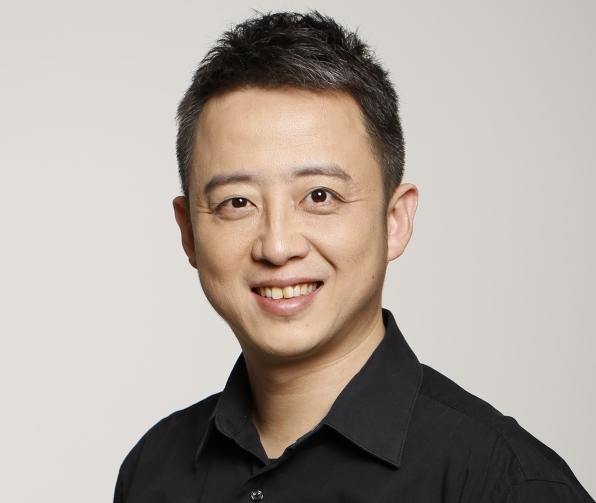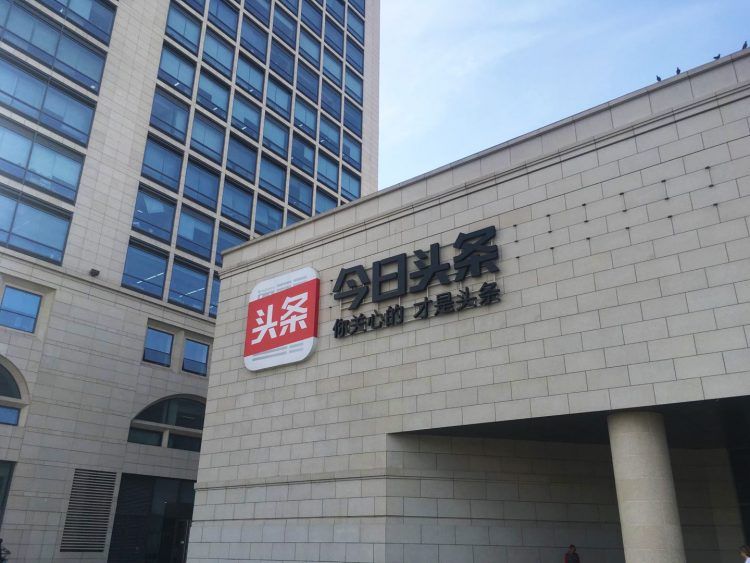
Photo credit: Matthew Bellemare / flickr
2017 saw its fair share of new unicorns in Asia – up by one from last year. Out of the 17 companies that crossed the US$1 billion threshold, almost all hailed from China, according to data from Tech in Asia’s database.
Only two companies broke from the herd: Indonesian ecommerce company Bukalapak and Revolution Precrafted, a startup in the Philippines that sells prefabricated homes – and the country’s first-ever unicorn.
“The unicorn landscape has changed tremendously from five years ago, when it was the US and Europe producing billion-dollar companies. Today, China is quickly catching up to the US and has far surpassed Europe,” said Arik Speier, head of technology at KPMG Israel, in the consulting firm’s third quarter report on global venture capital trends.
Here are all the new Asian unicorns from 2017, grouped by vertical and product category:
Transportation
1. NIO

NIO’s electric SUV, the ES8. Photo credit: NIO
Following the collapse of Tesla wannabe Faraday Future – bankrolled by former billionaire Jia Yueting – NIO has taken over as China’s rising electric car company.
Backed by Tencent, Baidu, and Sequoia Capital, NIO (previously known as NextEV) is also entering the self-driving space. By 2020, the startup plans to launch fully autonomous cars.
This year, NIO made a slew of announcements, from Eve – its autonomous concept car – to a showroom in Beijing that also doubles as a private club space for NIO users. In December, the company also launched the ES8 – NIO’s answer to Tesla’s Model X.
2. Mobike
One of the leading bike-rental startups in China, Mobike is flush with capital from investors like Tencent, Sequoia Capital, and Temasek. That’s important as bike companies figure out their business model – so far a mix of advertising and rental fees.
This year has been about overseas expansion for the Beijing-based startup. To date, it has bikes in 176 cities around the world, including 11 countries outside of China. Australia recently joined the company’s roster in November, with Mobike rolling out its orange bikes into Sydney.
Its domestic archrival Ofo also joined the billion-dollar club in 2017.
Not all bike rental companies have been so lucky or well-funded. Bluegogo, one of the top bike-rental startups in China, was forced to transfer its operations to another bike firm in Sichuan province because of financial struggles that included being unable able to pay its staff or refund deposits to users.
Like Mobike, bike-rental unicorn Ofo has spent 2017 doubling down on overseas expansion. And for 2018, it’s targeting four new countries: Russia, Italy, the Czech Republic, and the Netherlands.

One of OFO’s distinctive yellow bikes. Photo credit: Ofo’s Weibo
Though Mobike has Tencent in its corner, Ofo is backed by Alibaba affiliate Ant Financial. Ofo is also plugged into Sesame Credit, Ant Financial’s credit system, and this allows the startup to forego the US$15 bike deposit for users of a certain credit threshold so they can start riding immediately.
Tencent Credit is still in beta testing, though select users in Guangzhou were able to try out deposit-free Mobikes in November.
4. Souche
Souche is an online platform for buying and selling new and used cars. The Hangzhou-based startup also offers marketing and financial management services for auto dealers.
As sales of new automobiles in China have slowed, growth in China’s secondhand car market has picked up the slack (though the former still dwarfs the latter). Changing perceptions of used cars is one key driver – 47 percent of potential buyers in China considered secondhand cars as a good substitute for new cars in 2016, up from 18 percent in 2011.
Online platforms such as Souche have played a key role in shifting mindsets, as they’ve made secondhand cars sales more standardized and transparent.
In November, Souche got a US$335 million boost from Alibaba – a prelude to business integration and future collaboration with the ecommerce titan, including jointly building a new retail and financing platform for cars. Other investors in the startup include Ant Financial, Warburg Pincus, and Sequoia Capital.
Real estate
5. UrWork
Co-working spaces are a dime a dozen in China’s major cities. Amid increasing competition, different spaces are upping the ante to attract more tenants, such as offering free-flowing beer and other perks.
UrWork is one of the more well-funded players in the market. Backed by a mix of tech venture capitalists and real estate developers, the Beijing-based company has spaces in 30 different cities. In June, UrWork opened its first office in Singapore.
6. Revolution Precrafted

A modular home designed by David Salle. Photo credit: Revolution Precrafted
The Philippines saw its first-ever unicorn this year after Revolution Precrafted raised its series B round in October. The funding was led by K2, a Singaporean venture capital firm whose portfolio includes a number of other unicorns, such as Spotify and Palantir.
Founded in 2015, the startup sells prefabricated homes designed by world-renowned architects and designers like Zaha Hadid. On average, Revolution Precrafted’s houses cost US$120,000, and can be ordered and shipped anywhere in the world in at least 90 days.
7. Tujia
Unlike customers in Western markets like the US, Chinese consumers don’t find the idea of staying in a stranger’s house immediately attractive. Renting out a spare room also isn’t an option for many families in China.
“If they have kids, then it’s a two-bedroom apartment; if they have kids and parents living with them, then they may go for three bedrooms. Every bedroom is filled, so there’s no additional space for other people to stay in – we don’t have that kind of supply,” Tujia president Hai Zhuang told Tech in Asia.
See: Why Tujia is the Airbnb of China and not Airbnb
Called the “Airbnb of China,” Tujia has taken a slightly different approach from the US unicorn. Instead of relying solely on homeowners to participate, it takes advantage of the millions of vacant properties in China. It also helps local communities with property management and even runs agent services in larger cities.
The housing startup’s valuation pushed past the US$1 billion threshold in October when it raised a US$300 million series E round.

Tujia president Hai Zhuang. Photo credit: Tujia
8. Xiaozhu
Xiaozhu is also in the home-rental business. A month after Tujia announced its entry into the unicorn club, Xiaozhu joined as well, thanks to a US$120 million injection of funding led by Jack Ma’s Yunfeng Capital.
Xiaozhu, which means “little pig,” was founded in 2012 by Chen Chi. So far, the company has more than 200,000 properties listed on its site in more than 300 cities around the world.
Artificial intelligence and big data
9. SenseTime
As the demand for facial and image recognition surges in China, artificial intelligence companies like SenseTime are cashing in. This summer, the Hong Kong-based startup raked in a monster series B round of US$410 million, financed by private equity firm CDH Investments and Chinese investment firm Sailing Capital.
SenseTime’s facial and image recognition tech is used in a number of finance, security, and social media applications. China’s Twitter-like Weibo uses SenseTime’s facial recognition capabilities to detect faces and sort photos – as well as beautify them. Banks and fintech apps use the startup’s technology for face verification and identification.
Indeed, “smiling to pay” will become increasingly prevalent as both tech giants and startups roll out cashier-less shops and totally unmanned stores. Next year, SenseTime plans to go public and open a research and development center in the US.

KFC’s “smile to pay” ordering system. GIF by Tech in Asia. From video by Ant Financial
10. Cambricon
Named after the Cambrian explosion, Cambricon is tackling hardware inefficiencies in deep learning and artificial intelligence. Founded in March 2016, the Chinese chip developer is already valued at US$1 billion, according to Tech in Asia‘s database, thanks to investors like Alibaba and the Chinese Academy of Sciences.
At present, deep learning algorithms require enormous amounts of computing power. Creating specially made chips, however, could make artificial intelligence less resource-intensive. Last year, Cambricon released its first chip, the Cambricon 1A, which can be applied to a number of industries, such as robotics, drones, and self-driving cars.
11. DT Dream
DT Dream is a big data and cloud computing platform whose product is tightly integrated with Alibaba businesses such as Sesame Credit and its Alipay payments system. It also provides companies support for “new retail,” where online and offline consumer data is combined to drive sales.
In June, DT Dream raised US$113 million in a series A round from Everbright Industry Capital Management, Yinxinggu Capital, and Alibaba, which also participated in its previous round. In addition to Alibaba, DT Dream also counts Chinese car company Geely and ride-hailing firm Didi Chuxing as among its clients.
Education
12. Yuanfudao
In China, where education resources are disproportionately concentrated in major cities, parents are increasingly turning to online education as an alternative.
That trend has been a boost to Yuanfudao’s business, an online education platform that matches online tutors with kids. Parents can purchase several different tutoring packages for their kids, from English and math courses for kindergarten to high school students. They can also scope out the tutors, who have individual profile pages that don’t only detail their work experience and rating, but also includes an introductory video.
“Education is a lasting theme which every Chinese family will invest significantly in,” said Gordon Ding, managing director of Warburg Pincus, in an interview with the South China Morning Post. In May, Yuanfudao gained unicorn status after a US$120 million round from Warburg Pincus and Tencent.
13. VIPKID
Like Yuanfudao, VIPKID also tackles accessibility pain points in China’s education system. Specifically, the Beijing-based startup connects English teachers in the US and Canada with mainland Chinese students under 12 years old. Classes are conducted in the company’s proprietary online classroom.
As of August, the startup said it had more than 200,000 paying students from 32 countries. Its monthly revenue peaked in July at US$60 million. Though China is full of English education companies such as Education First and Wall Street English, VIPKID is one of the few that focuses on children.
VIPKID is also a portfolio company of Tencent, and is backed by Sequoia Capital, Matrix Partners, and ZhenFund, among other investors.
Media
14. Bytedance

Toutiao headquaters in Beijing. Photo credit: Tech in Asia
In an ecosystem dominated by Alibaba and Tencent, Bytedance’s rise as an independent entity is extraordinary in and of itself. That it’s also estimated to be worth as much as US$20 billion means it’s a tech giant in its own right.
This year, the Beijing-based startup made a number of acquisitions, such as US video creation app Flipagram and Musical.ly, a video-based social network that’s become viral among teens in the US and Canada.
Both acquisitions go towards boosting Toutiao, Bytedance’s flagship news aggregation app. Toutiao is known for its AI-driven newsfeeds, where algorithms decide what articles to push to users, depending on their behavior on the app. According to the company, Toutiao has 120 million monthly active users.
In addition to feeding Toutiao’s machine learning systems with more data, acquisitions like Musical.ly will help the startup takes its business abroad. ByteDance is eyeing several overseas markets, such as Southeast Asia, Japan, Brazil, and India.
15. Yidian Zixun
Yidian Zixun is also a news aggregation app. It competes with Bytedance’s Toutiao, although it’s nowhere near as sticky. As of January, the company said it had 48 million daily active users.
Founded in 2010 by Zhaohui Zheng, the former head of Yahoo Lab in Beijing, and ex-Baidu executive Ren Xuyang, Yidian Zixun is one of the few companies in China with “special management shares” or shares that are owned by the government.
Ecommerce
16. Bukalapak
In a market swimming with deep-pocketed competitors like Lazada and Shopee, Indonesian ecommerce startup Bukalapak believes it has a local advantage. In particular, it has set its sights on the country’s second- and third-tier cities that “don’t even use Facebook,” said company CEO Achmad Zaky during a fireside chat at Tech in Asia Jakarta 2017.

Bukalapak CEO Achmad Zaky talks about competition in the Indonesian ecommerce space at Tech in Asia Jakarta 2017. Photo credit: Tech in Asia
“A lot of SMEs are finding it hard to make money offline because the cost is really high. This is the problem we solve – we help smaller players become competitive against malls through the internet,” explained Zaky.
Still, Bukalapak has its work cut out for 2018, as its competitors have spent 2017 consolidating and gathering fresh funds. In August, Chinese ecommerce giant Alibaba put US$1.1 billion into Bukalapak’s local rival Tokopedia, tying it together with Lazada – another Alibaba portfolio company and a major ecommerce player in Southeast Asia.
In October, Singapore-based Sea went public on the New York Stock Exchange, raising US$884 million on its first day. Sea owns businesses in online gaming, ecommerce, and digital payments.
That makes Bukalapak’s funding war chest all the more important as companies continue to battle over Indonesia’s ecommerce market, which could reach US$130 billion by 2020. In November, the startup nabbed unicorn status after an undisclosed round of funding. It raised series B funding from Indonesian media conglomerate Emtek Group in 2015.
Social media
17. Zhihu
Quora-like Zhihu is part of a growing trend in China, where users pay experts and thought leaders for knowledge. Unlike its Western counterpart, Zhihu is monetizing its network of industry experts by offering paid livestreaming sessions, where users can attend live lectures and interact in real-time with different speakers.
In January, Zhihu raised a US$100 million round of series D funding, pushing it into unicorn territory. In 2016, the site had 65 million registered users, of which 18.5 million were daily active users.
This year, the question-and-answer site has seen increasing competition from Bytedance’s Toutiao, which has poached various industry experts from Zhihu’s site while building its own question-and-answer column.
Thanks to Queena Wadyanti for help with the data.
Currency converted from Chinese yuan. Rate: US$1 = RMB 6.61
This post This year’s new herd of unicorns appeared first on Tech in Asia.
from Tech in Asia https://www.techinasia.com/2017-new-unicorns
via IFTTT

No comments:
Post a Comment